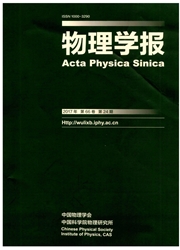

 中文摘要:
中文摘要:
近几十年来,匹配场处理技术得到了广泛深入的研究,并针对实际应用提出了一系列的具体处理算法.当感兴趣的水下目标信号被水面强干扰信号掩蔽时,对水下目标的匹配场处理定位性能显著下降.现有的广义空域滤波器可以抑制水面强干扰,但计算速度较慢并且内存消耗较大.提出了一种基于压缩拷贝场算法的空域滤波器设计方案,并通过非相干叠加处理宽带问题.相对于现有的空域滤波器,当接收阵元数Ⅳ大于波导中有效简正波号数Q时,该滤波器可以大幅度缩减计算时间、节约运行内存,并且保持了对水面强干扰的抑制性能.针对近岸浅海环境进行了仿真计算,并给出了一些近岸浅海海域试验数据处理结果,验证了该空域滤波器的性能和对计算速度的提升.结果表明,应用基于压缩拷贝向量的矩阵滤波器对强干扰下的弱目标进行宽带非相干匹配场定位,可实现水下目标的有效区分.
 英文摘要:
英文摘要:
Matched field processing techniques have been studied extensively in recent decades, and a lot of detail algorithms have been put forward for practical use. When the underwater target is obscured by the strong surface interferences, the performance of matched field processing localization will degrade severely. The now existing spatial filter technique can be used to suppress the surface interferences, but the burden of calculation is heavy and the memory usage is large. In this paper, a scheme of optimizing spatial filter design based on the compressed replica vectors is presented, and the broadband data are processed incoherently. In contrary to the existing spatial filter, the optimized spatial filter can effectively reduce the computational complexity and memory usage when the number of array elements N is greater than the number of the effective modes Q, meanwhile, it also retains the original performance of interference suppression. Numerical simulations in a littoral shallow water environment are performed to validate the performance of the spatial filter and the promotion of computation speed. Then, data processing results obtained from an experiment conducted in the littoral shallow water environment are presented. It follows from the results that the weak underwater target can be distinguished from the strong surface interference clearly by use of the incoherent matched field processing with the application of the spatial filter based on compressed replica vectors.
 同期刊论文项目
同期刊论文项目
 同项目期刊论文
同项目期刊论文
 期刊信息
期刊信息
